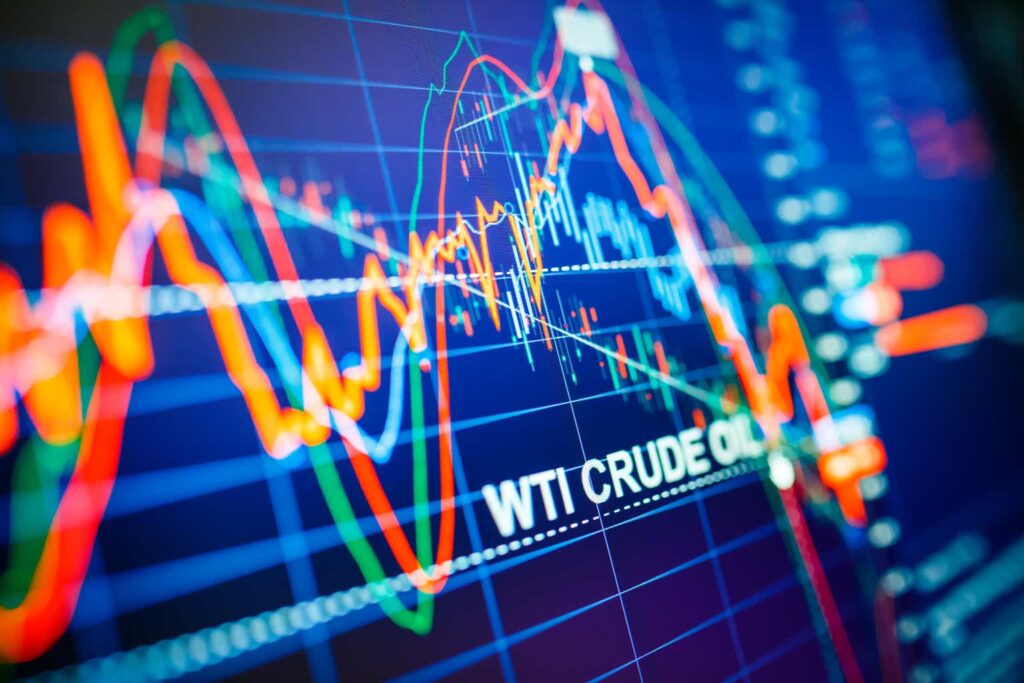Oil spikes
Crude oil and gold futures bumped higher in response to the Hamas attack on Israel, which caused over 700 Israeli deaths so far and the abduction of several Israeli citizens and soldiers. More than 400 Palestinians have been killed in retaliatory Israeli strikes on the Gaza Strip. WTI November crude oil (CL1:COM) rose to as high as $87.39/bbl on Sunday, while the December Brent crude (CO1:COM) climbed to $89.15 /bbl. December Comex gold (XAUUSD:CUR) rose more than 1%.
Bigger picture: Analysts generally expect a “knee-jerk surge” in crude prices but limited gains thereafter, provided the conflict does not expand into a regional war – which is far from certain, since the fighting is on the doorstep of an important oil-producing and exporting region. “While oil fundamentals have not changed since these attacks, it does not mean they won’t,” ING Economic and Financial Analysis warned, flagging risks to oil supply. If Iranian involvement in the attack is affirmed, the U.S. could step up sanctions on Iran’s crude exports. If Israel were to strike any Iranian infrastructure, crude oil prices would spike immediately.
The Biden administration had hoped to broker a Saudi-Israel deal in the next six months, but the escalating situation in Israel has likely dashed hopes for normalized relations between the countries. Saudi Arabia is not expected to slow oil production, although there is a risk of the Saudis unwinding their additional voluntary supply. The surprise attack also leaves Israel unlikely to make any concessions to the Palestinians that the Saudi government might have sought.
Market impact: U.S. stock index futures pointed to a lower open today, while traders are seeking out safe haven assets to hedge against the latest geopolitical turmoil. The U.S. dollar index (DXY) rose 0.4% to cross $106, while the Japanese yen (USD:JPY) – another traditional safe-haven currency – ticked up 0.1% to 149.15 per dollar. Note that the U.S. bond market is closed for Columbus Day. Defense stocks rose before the bell – Lockheed Martin (LMT) +5%, RTX (RTX) +4.6% and General Dynamics (GD) +3.2%. American Airlines (AAL), United Airlines (UAL) and Delta Air Lines (DAL) – all of whom suspended direct flights to Israel – traded 2% lower each. (75 comments)
Mirati takeover
Bristol-Myers Squibb (BMY) will acquire Mirati Therapeutics (MRTX) for about $4.8B, ending months of speculation over which pharmaceutical giant would buy the cancer drug maker ahead of its pipeline updates. Mirati shareholders will also receive one non-tradeable Contingent Value Right for each share held, potentially worth $12/share. Mirati’s lung cancer drug Krazati has been in the spotlight of late, especially since the FDA’s accelerated approval that led to takeover interest, even from Sanofi (SNY). Note that Mirati will release additional Phase 3 data on Krazati this month. Meanwhile, BMO raised its peak market penetration estimate for Krazati to 30% as a second-line treatment, reflecting the possibility of Amgen’s (AMGN) cancer drug Lumakras not being approved. (21 comments)
New proxy fight
Nelson Peltz is planning to push for board seats at Disney (DIS) once again, as its stock continued to decline despite the entertainment conglomerate’s reorganization efforts. Peltz’s Trian Fund Management, one of Disney’s largest shareholders, is expected to request multiple seats, including one for Peltz. The activist investor previously tried to run for a seat on Disney’s board, but he withdrew his nomination after Disney announced major cost cuts. However, its shares dropped about 25% since Peltz ended his proxy fight. Investing Group Leader Danil Sereda has advised traders to avoid Disney’s stock, as there are no significant changes that would favor a rapid recovery. (3 comments)
Tesla headwinds
Tesla (TSLA) dipped 1.6% before the bell today, as the headwinds facing the automaker continue to mount. Tesla’s China sales in Sept. dropped 10.9% Y/Y and 12% lower than its tally in Aug. Adding to its woes, the company’s latest price cuts following its Q3 deliveries miss, are expected to further impact demand. Tesla has been adjusting prices across models based on market conditions as it prioritizes volume over pricing and near-term profits. “Tesla’s intention is to realize greater profit from post-sale products such as Full Self Driving,” Bank of America noted. But SA analyst Christoph Liu is doubtful of Tesla’s “aspirational” targets, given stiff competition and its history of overpromising. (85 comments)
